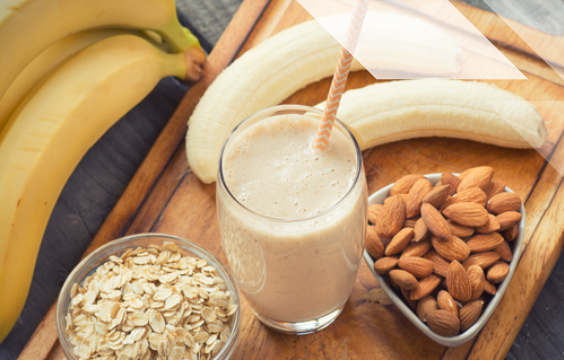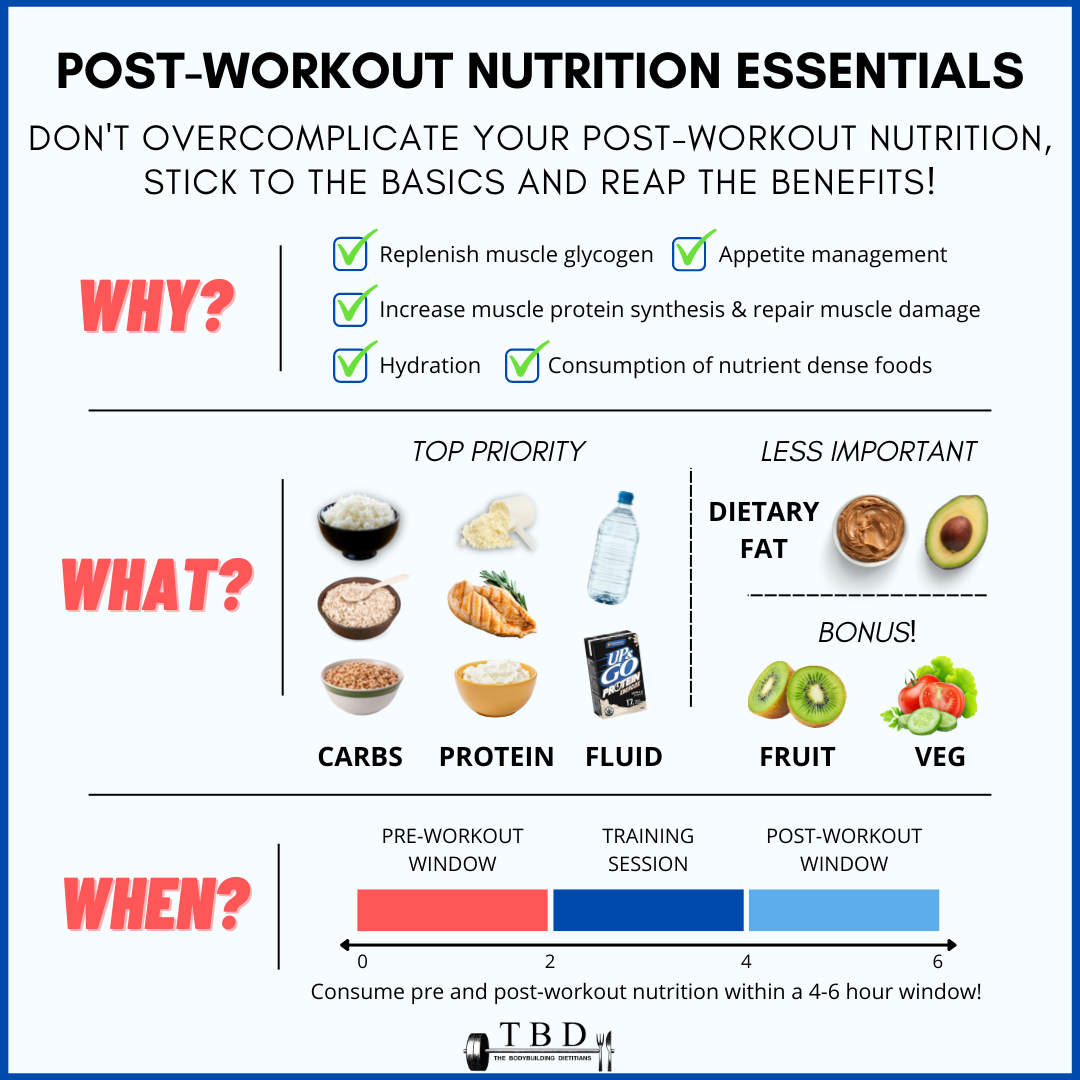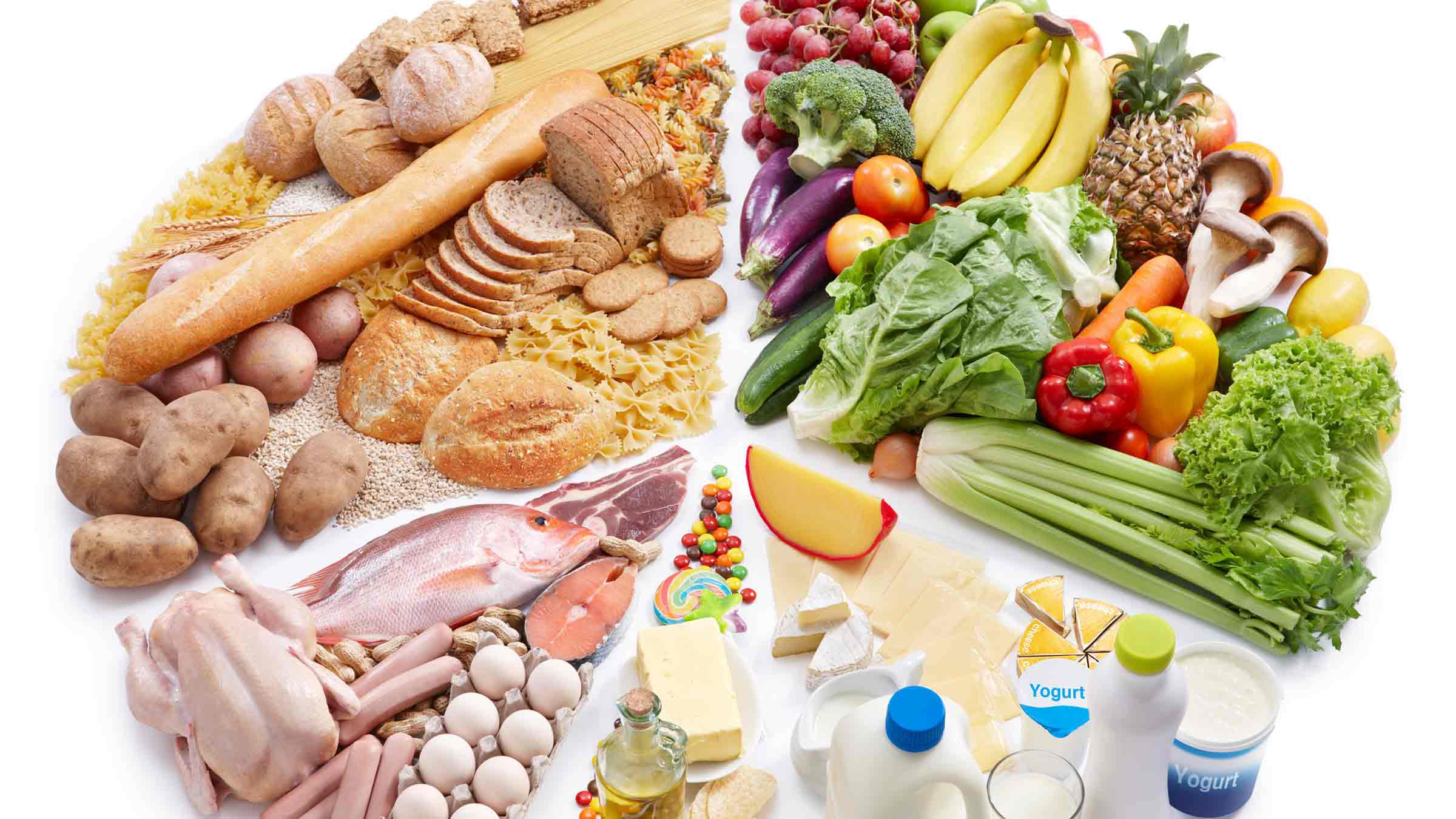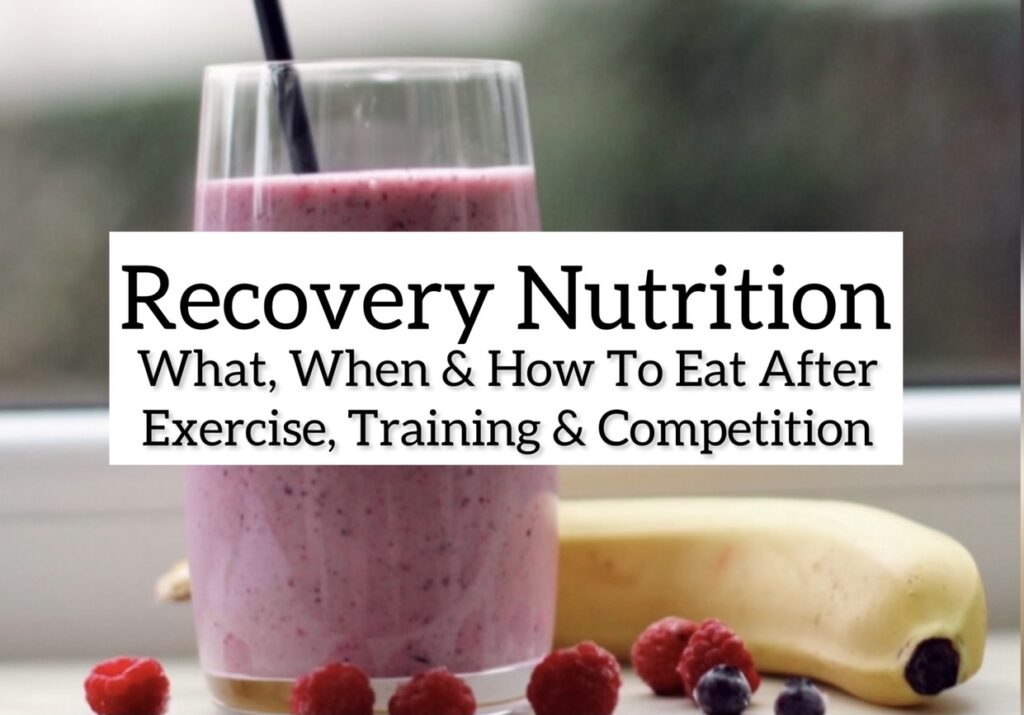Contents
- I. Introduction to Recovery Nutrition
- II. Understanding the Importance of Recovery Nutrition
- III. Key Principles of Recovery Nutrition
- IV. Nutrients to Include in Your Recovery Nutrition Plan
- 1. Protein
- 2. Carbohydrates
- 3. Healthy Fats
- 4. Antioxidants
- 5.Hydration Maintaining optimal hydration levels is essential for proper recovery. Water helps transport nutrients to your muscles and removes waste products. Additionally, it aids in regulating body temperature and preventing dehydration. Make sure to drink enough water throughout the day, especially before, during, and after exercise. Remember that every individual’s nutritional needs may vary based on factors such as activity level, body composition goals, and overall health. Consulting with a registered dietitian can provide you with personalized guidance to develop an effective recovery nutrition plan tailored to your specific needs.
- V. Timing Your Nutrition for Optimal Recovery
- VI. Sample Recovery Nutrition Plan
- VII. Addressing Common Concerns and Misconceptions about Recovery Nutrition
- 1. Is recovery nutrition only important for professional athletes?
- 2. Can’t I just rely on regular meals to aid in my recovery?
- 3. Will consuming protein immediately after a workout make me bulk up?
- 4. Are carbohydrates bad for recovery because they can lead to weight gain?
- 5. Can I skip post-workout nutrition if I’m trying to lose weight?
- 6. Is it necessary to consume supplements for effective recovery?
- 7. Can I rely solely on hydration without considering other aspects of recovery nutrition?
- VIII. Frequently Asked Questions: Recovery Nutrition
- 1. What is recovery nutrition?
- 2. Why is recovery nutrition important?
- 3. What should I eat after a workout for optimal recovery?
- 4. Is timing important when it comes to recovery nutrition?
- 5. Should I consider supplements for recovery nutrition?
- 6. Can I have a recovery drink instead of solid food?
- 7. Are there any specific nutrients or foods that promote faster recovery?
- 8. How does hydration play a role in recovery nutrition?
- 9. Can I indulge in some treats after exercising?
- 10. Should my recovery nutrition plan vary depending on the type of exercise I do?
I. Introduction to Recovery Nutrition

Recovery nutrition is a crucial aspect of any fitness or athletic routine. After intense exercise, the body needs proper nourishment to replenish energy stores, repair muscle tissue, and optimize recovery. Whether you’re a professional athlete or someone who enjoys regular workouts, understanding the importance of recovery nutrition can greatly enhance your performance and overall well-being.
The Science Behind Recovery Nutrition
When we engage in physical activity, our muscles undergo stress and strain that leads to microscopic damage. This damage triggers an inflammatory response in the body as it begins repairing the affected tissues. Recovery nutrition plays a vital role in this process by providing essential nutrients that aid in tissue repair and reduce inflammation.
The Role of Macronutrients
Incorporating the right balance of macronutrients—carbohydrates, proteins, and fats—is key for effective recovery nutrition. Carbohydrates are essential for replenishing glycogen stores, which provide energy during exercise. Proteins are necessary for muscle repair and growth while fats aid in hormone production and nutrient absorption.
Timing is Everything
To maximize the benefits of recovery nutrition, timing is crucial. It’s recommended to consume a post-workout meal or snack within 30 minutes to one hour after exercising when your muscles are most receptive to nutrient absorption. This window allows for faster glycogen replenishment and muscle protein synthesis.
The Importance of Hydration
Hydration plays an equally important role in recovery nutrition as it helps maintain optimal bodily functions during exercise and aids in nutrient delivery throughout the body. Replenishing lost fluids through water consumption or electrolyte-rich beverages is essential for efficient recovery.
Tailoring Recovery Nutrition to Your Needs
No two individuals are the same, and their recovery nutrition needs may vary based on factors such as age, gender, activity level, and specific fitness goals. Consulting with a registered dietitian or sports nutritionist can help you create a personalized recovery nutrition plan that caters to your unique needs.
In conclusion, prioritizing recovery nutrition is essential for optimizing athletic performance and overall well-being. By understanding the science behind it and tailoring it to your individual needs, you can ensure efficient muscle repair, replenish energy stores, reduce inflammation, and enhance your body’s ability to recover after exercise. Remember to consume the right balance of macronutrients at the appropriate timing while staying adequately hydrated for optimal results.
II. Understanding the Importance of Recovery Nutrition

When it comes to physical activity, whether it be intense workouts or endurance training, proper recovery nutrition plays a crucial role in optimizing performance and enhancing overall well-being. The post-workout period is a critical time for replenishing energy stores, repairing damaged muscles, and promoting optimal recovery.
The Role of Macronutrients
Macronutrients are the essential components of recovery nutrition that provide the body with energy and support various physiological processes. These include carbohydrates, proteins, and fats.
1. Carbohydrates: Carbs are the primary fuel source for our muscles during exercise. Consuming carbohydrates after a workout helps replenish glycogen stores that may have been depleted during prolonged or intense physical activity.
2. Proteins: Protein is essential for muscle repair and growth. It aids in rebuilding damaged muscle tissues caused by intense exercise and supports the development of lean muscle mass.
3. Fats: While often overlooked in recovery nutrition, healthy fats are important for maintaining overall health and providing sustained energy throughout the day.
The Timing of Nutrient Intake
The timing of nutrient intake is crucial when it comes to maximizing recovery benefits after exercise.
1. Post-Workout Window: Ideally, consuming a combination of carbohydrates and protein within 30 minutes to an hour after your workout can help kickstart the recovery process by replenishing glycogen stores and initiating muscle repair.
2. Pre-Bedtime Snack:A small snack containing slow-digesting proteins before bed can provide your body with a steady supply of amino acids overnight to aid in muscle repair and growth.
Hydration and Electrolyte Balance
Proper hydration is key to recovery nutrition. During exercise, the body loses fluids through sweat, which can lead to dehydration if not replenished. Additionally, electrolytes such as sodium, potassium, and magnesium are essential for maintaining fluid balance and muscle function.
1. Water Intake: Drink enough water throughout the day to stay adequately hydrated before, during, and after your workout.
2. Electrolyte Replenishment: Consider sports drinks or natural electrolyte-rich foods like bananas or coconut water to replenish electrolytes lost during physical activity.
The Importance of Balanced Meals
A balanced meal following a workout should incorporate all macronutrients along with a variety of vitamins and minerals for optimal recovery benefits. Focus on whole foods such as lean proteins (chicken breast or tofu), complex carbohydrates (brown rice or quinoa), healthy fats (avocado or nuts), and plenty of fruits and vegetables.
III. Key Principles of Recovery Nutrition

When it comes to recovery nutrition, there are several key principles that can help optimize your body’s ability to recover and repair after intense physical activity. By following these principles, you can enhance muscle protein synthesis, replenish glycogen stores, reduce inflammation, and promote overall recovery.
Fuel Up with Protein
Protein is an essential macronutrient for muscle repair and growth. Consuming an adequate amount of high-quality protein within the first hour post-exercise is crucial for initiating the muscle rebuilding process. Aim to consume around 20-30 grams of protein from sources like lean meats, poultry, fish, eggs, dairy products or plant-based alternatives.
Replenish Glycogen Stores
Glycogen is the primary fuel source for our muscles during exercise. To replenish depleted glycogen stores quickly after a workout or competition, consume carbohydrates in combination with protein within 30 minutes to two hours post-exercise. This will help restore energy levels and prepare your body for subsequent training sessions.
Hydrate Adequately
Proper hydration is essential not only during exercise but also in the recovery phase. Dehydration can impair performance and hinder optimal recovery processes. Aim to drink enough fluids throughout the day to maintain urine color close to pale yellow and replace any fluid losses incurred during exercise.
Nourish with Antioxidants
Demanding physical activity generates oxidative stress in the body that can lead to inflammation and cell damage. Incorporating antioxidant-rich foods such as colorful fruits and vegetables into your diet helps combat this oxidative stress by neutralizing harmful free radicals.
Incorporate Healthy Fats
Fat plays a crucial role in hormone production and inflammation regulation. Including sources of healthy fats such as avocados, nuts, seeds, and olive oil in your recovery nutrition can support optimal hormonal balance and reduce exercise-induced inflammation.
Individualize Based on Needs
Everyone’s recovery needs are different, depending on factors like age, gender, body composition, training intensity, and duration. It is important to personalize your recovery nutrition plan based on these individual factors to maximize the effectiveness of your post-exercise nutrition.
By following these key principles of recovery nutrition, you can optimize your body’s ability to bounce back from intense physical activity. Remember that proper rest and sleep are also essential components of the recovery process. Prioritize both proper nutrition and rest to ensure you’re giving your body the best chance for full recovery between training sessions or competitions.
IV. Nutrients to Include in Your Recovery Nutrition Plan

When it comes to optimizing your recovery and enhancing your performance, paying attention to your nutrition is crucial. Consuming the right nutrients can aid in muscle repair, replenish energy stores, and reduce inflammation. Here are some essential nutrients that you should include in your recovery nutrition plan:
1. Protein
No recovery plan is complete without an ample amount of protein. Protein plays a vital role in repairing damaged muscles and promoting their growth and strength. Aim for a combination of high-quality animal and plant-based protein sources like lean meats, poultry, fish, eggs, dairy products, legumes, tofu, tempeh, or quinoa.
2. Carbohydrates
Carbohydrates are the primary fuel source for our bodies during exercise. Including carbohydrates in your recovery nutrition plan helps replenish glycogen stores that get depleted during intense physical activity. Opt for complex carbohydrates like whole grains (oats, brown rice), fruits (berries), vegetables (sweet potatoes), and legumes (black beans).
3. Healthy Fats
Incorporating healthy fats into your recovery nutrition plan aids in reducing inflammation and supporting overall health. Include sources of omega-3 fatty acids such as fatty fish (salmon), walnuts, flaxseeds or chia seeds.
4. Antioxidants
To combat oxidative stress caused by intense workouts or physical exertion on the body’s cells and tissues; include plenty of antioxidants-rich foods like berries (blueberries), dark leafy greens (spinach), citrus fruits (oranges) or green tea.
5.Hydration
Maintaining optimal hydration levels is essential for proper recovery. Water helps transport nutrients to your muscles and removes waste products. Additionally, it aids in regulating body temperature and preventing dehydration. Make sure to drink enough water throughout the day, especially before, during, and after exercise.
Remember that every individual’s nutritional needs may vary based on factors such as activity level, body composition goals, and overall health. Consulting with a registered dietitian can provide you with personalized guidance to develop an effective recovery nutrition plan tailored to your specific needs.
V. Timing Your Nutrition for Optimal Recovery
When it comes to optimizing your recovery, timing your nutrition plays a crucial role. The foods and nutrients you consume after a workout or physical activity can greatly impact your body’s ability to repair and replenish itself. Here are some key considerations for timing your nutrition for optimal recovery:
1. Post-Workout Window
The post-workout window is an essential time frame to fuel your body with the right nutrients. Aim to consume a balanced meal or snack within 30 minutes to an hour after completing your exercise session. This helps jumpstart the recovery process by replenishing glycogen stores, repairing damaged tissues, and promoting muscle protein synthesis.
2. Protein Power
Incorporating adequate protein into your post-workout nutrition is vital for muscle repair and growth. Include high-quality sources of protein such as lean meats, fish, eggs, dairy products, legumes, or plant-based alternatives like tofu and tempeh.
3. Carbohydrate Replenishment
Carbohydrates are essential for restoring glycogen levels in the muscles after intense physical activity. Choose complex carbohydrates like whole grains, fruits, vegetables, and starchy tubers as they provide sustained energy release.
4. Hydration Matters
Adequate hydration is often overlooked but plays a critical role in supporting optimal recovery. Drink water before and during exercise sessions to maintain proper hydration levels throughout the day.
5. Pre-Workout Fueling
To ensure you have enough energy during workouts or physical activities that last longer than an hour, consider consuming a small pre-workout snack containing easily digestible carbohydrates about 30 minutes beforehand.
6. Nutrient Timing for Muscle Building
If your goal is muscle building, it’s beneficial to consume a protein-rich meal or snack before bedtime. This strategy enhances overnight muscle protein synthesis and provides a steady supply of amino acids to support muscle repair and growth.
7. Listen to Your Body
While general guidelines exist for optimal recovery nutrition, everyone’s needs may vary. Pay attention to how your body responds to different nutrients and adjust your timing accordingly.
8. Consult with a Professional
If you’re unsure about the best timing for your nutrition needs, it’s always helpful to consult with a registered dietitian or sports nutritionist who can provide personalized guidance based on your specific goals and requirements.
Remember, optimizing recovery through proper nutrition starts with understanding the importance of timing. By fueling your body at the right moments, you can enhance performance, reduce fatigue, and maximize the benefits of physical activity.
VI. Sample Recovery Nutrition Plan
When it comes to recovering from intense physical activity, nutrition plays a crucial role. Providing your body with the right nutrients after a workout can help replenish energy stores, repair damaged tissues, and promote muscle growth. Here is a sample recovery nutrition plan that you can follow to optimize your post-workout recovery:
1. Hydration is Key
Start by rehydrating your body after exercise. Aim to drink at least 16-20 ounces of water within the first hour of completing your workout. If you’ve been engaged in strenuous activities or have been sweating excessively, consider including an electrolyte-rich sports drink or coconut water to replenish essential minerals lost through sweat.
2. Replenish Carbohydrates
Your muscles rely on glycogen as fuel during exercise, so it’s important to restore these depleted glycogen stores post-workout. Include carbohydrates in your recovery meal or snack within 30 minutes after exercising for optimal absorption and utilization by the muscles. Opt for complex carbohydrates like whole grains, fruits, and vegetables rather than simple sugars.
3. Prioritize Protein Intake
Incorporate protein into your recovery plan as it assists in repairing damaged muscle tissues and supports muscle growth and strength development. Consume about 20-30 grams of high-quality protein within one hour of finishing your workout session. Good sources include lean meats, poultry, fish, dairy products like Greek yogurt or cottage cheese, eggs, legumes such as lentils or beans.
4. Don’t Forget About Healthy Fats
Including healthy fats in your post-workout meal helps slow down digestion and provides sustained energy throughout the day while aiding nutrient absorption from other food sources consumed. Avocado, nuts, seeds, and olive oil are excellent sources of healthy fats that you can incorporate into your recovery nutrition plan.
5. Include Antioxidant-Rich Foods
Intense exercise can lead to an increase in oxidative stress and inflammation in the body. Combat this by including antioxidant-rich foods like berries, dark leafy greens, colorful vegetables (such as bell peppers or tomatoes), and green tea in your recovery meal. These foods help neutralize free radicals and reduce inflammation.
Remember that individual nutritional needs may vary based on factors such as body weight, fitness goals, and the intensity of the workout. Adjust the portion sizes accordingly to meet your specific requirements.
By following this sample recovery nutrition plan, you’ll be providing your body with the necessary nutrients it needs to repair itself after intense physical activity. Prioritizing proper post-workout nutrition will not only enhance your recovery but also improve performance during subsequent workouts.
VII. Addressing Common Concerns and Misconceptions about Recovery Nutrition
1. Is recovery nutrition only important for professional athletes?
A common misconception is that recovery nutrition is only necessary for professional athletes or individuals engaged in intense physical training. However, the truth is that proper nutrition during the recovery phase is essential for anyone who engages in physical activity, regardless of their fitness level.
2. Can’t I just rely on regular meals to aid in my recovery?
While regular meals are important for overall health and well-being, they may not provide the specific nutrients and timing required to optimize recovery after exercise. Recovery nutrition focuses on replenishing glycogen stores, repairing muscle tissue, and reducing inflammation, which may require targeted supplementation or specialized post-workout meals.
3. Will consuming protein immediately after a workout make me bulk up?
No, consuming protein immediately after a workout will not automatically make you bulk up unless you are following a specific training program aimed at building muscle mass. Protein plays a crucial role in muscle repair and growth; however, it does not cause excessive muscle gain without appropriate resistance training and calorie surplus.
4. Are carbohydrates bad for recovery because they can lead to weight gain?
Carbohydrates are actually essential for optimal recovery as they replenish depleted glycogen stores and provide energy to facilitate muscle repair processes. While excessive carbohydrate intake can lead to weight gain if consumed in excess of one’s energy needs, moderate consumption as part of a balanced diet supports efficient recovery without causing unwanted weight changes.
5. Can I skip post-workout nutrition if I’m trying to lose weight?
Skipping post-workout nutrition while trying to lose weight may seem tempting; however, it can hinder your progress. Proper recovery nutrition helps preserve lean muscle mass, enhances metabolism, and aids in the body’s ability to burn fat. It is important to choose nutrient-dense foods that support weight loss goals while still meeting the body’s recovery needs.
6. Is it necessary to consume supplements for effective recovery?
While supplements can be beneficial in certain cases, they are not necessary for effective recovery nutrition. A well-balanced diet that includes whole foods can provide all the nutrients needed for optimal recovery. However, individuals with specific dietary restrictions or those engaged in intense training may benefit from targeted supplementation under the guidance of a healthcare professional.
7. Can I rely solely on hydration without considering other aspects of recovery nutrition?
Hydration is undoubtedly crucial for overall health and performance; however, it is only one aspect of comprehensive recovery nutrition. Adequate fluid intake helps replenish fluids lost during exercise but does not address other essential components such as glycogen replenishment and muscle repair, which require appropriate nutrient intake.
In conclusion, addressing common concerns and misconceptions about recovery nutrition is vital to ensure individuals understand its importance regardless of their fitness level or goals. By debunking myths and providing accurate information, we can help individuals make informed choices about their post-exercise nutritional strategies.
VIII. Frequently Asked Questions: Recovery Nutrition
1. What is recovery nutrition?
Recovery nutrition refers to the specific dietary practices and choices made after physical activity or exercise to optimize the body’s ability to repair and replenish itself. It involves consuming the right nutrients in the right amounts at the right time to promote muscle recovery, glycogen replenishment, and overall healing.
2. Why is recovery nutrition important?
Recovery nutrition plays a critical role in maximizing athletic performance and minimizing post-exercise fatigue and soreness. It helps restore energy levels, rebuild damaged tissues, reduce muscle breakdown, enhance immune function, and promote optimal adaptation to training.
3. What should I eat after a workout for optimal recovery?
The ideal post-workout meal should contain a combination of protein and carbohydrates. Protein helps repair damaged muscles, while carbohydrates replenish glycogen stores used during exercise. Good options include lean meats or plant-based proteins like tofu or legumes paired with whole grains or fruits.
4. Is timing important when it comes to recovery nutrition?
Absolutely! The body is most receptive to nutrient uptake within 30 minutes to 1 hour after exercise when glycogen synthesis rates are highest. Aim to consume your post-workout meal or snack as soon as possible after finishing your workout for optimal results.
5. Should I consider supplements for recovery nutrition?
Sports supplements can be helpful in supporting recovery if used wisely and under professional guidance. Whey protein powders, branched-chain amino acids (BCAAs), creatine monohydrate, and tart cherry juice are some examples of supplements that may aid in muscle repair, reduce inflammation, or enhance glycogen resynthesis.
6. Can I have a recovery drink instead of solid food?
Absolutely! Recovery drinks can be a convenient and effective option, especially when immediate nourishment is needed. Look for options that provide a blend of carbohydrates and protein to support muscle recovery and replenish energy stores.
7. Are there any specific nutrients or foods that promote faster recovery?
Apart from protein and carbohydrates, certain nutrients are particularly beneficial for recovery nutrition. These include omega-3 fatty acids found in fatty fish like salmon, antioxidants present in colorful fruits and vegetables, as well as anti-inflammatory spices like turmeric.
8. How does hydration play a role in recovery nutrition?
Hydration is crucial for optimal performance and recovery. Replenishing fluids lost through sweat helps maintain blood volume, regulate body temperature, deliver nutrients to muscles, remove waste products, and support overall cellular function.
9. Can I indulge in some treats after exercising?
Moderation is key! While it’s important to prioritize nutrient-dense foods for optimal recovery, there’s room for occasional treats as part of a balanced diet. Just remember not to overindulge frequently or rely solely on unhealthy options that lack essential nutrients.
10. Should my recovery nutrition plan vary depending on the type of exercise I do?
Absolutely! Different types of exercise place varying demands on the body’s energy systems and muscle groups. Depending on whether you engage in endurance training or strength-based workouts, your nutrient requirements may differ slightly to meet those specific needs.

Shelby Cortez is a dynamic and passionate individual with a strong background in the fitness industry. With a Bachelor’s degree in Exercise Science from the prestigious University of California, she has gained extensive knowledge about the human body and its mechanics. Shelby’s dedication to fitness goes beyond her education, as she has spent years honing her skills as a personal trainer and group fitness instructor. Her expertise in workout routines and nutrition has helped countless individuals achieve their fitness goals. Shelby’s commitment to health and wellness is evident in her own lifestyle, as she consistently pushes herself to new limits in the gym. Whether it’s weightlifting, yoga, or HIIT workouts, Shelby Cortez is the go-to expert for all things fitness-related.
